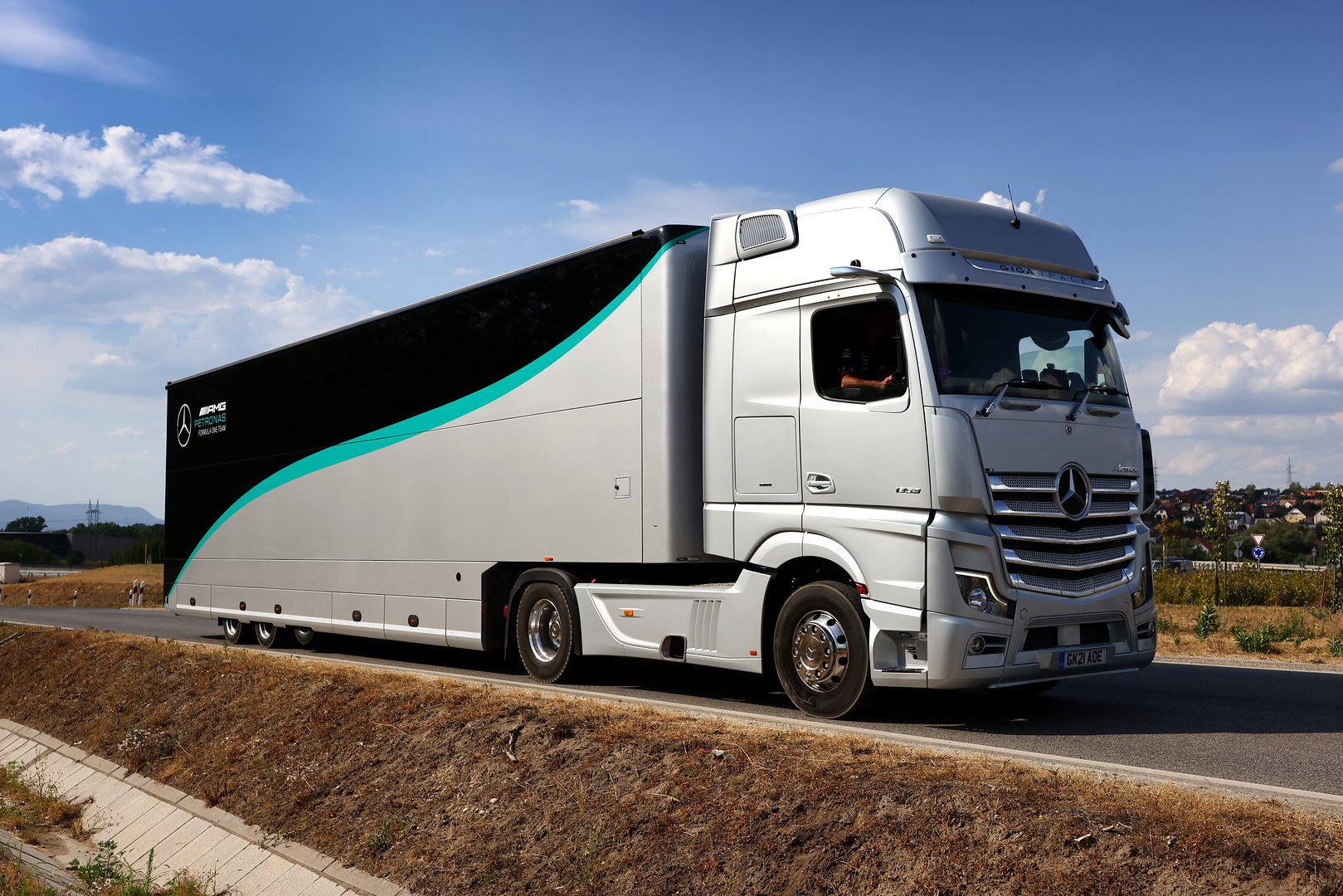
Freight contributes the lion’s share of the emissions produced by formula 1. The Mercedes-AMG PETRONAS Formula 1 Team says it has set its sights on over 60% emissions reduction and 200TCO2 saved through biofuel use for the forthcoming Formula 1 European season.
The team, PETRONAS and logistics partners say they are working together to deliver the aspiration of a fully biofueled European season following a successful trial in 2022 which saw a reported 89% reduction in CO2 freight emissions.
New sustainability exclusions in the Financial Regulations of the sport were approved at the most recent F1 Commission, “enabled by constructive cooperation between the FIA, Formula One and the ten teams,” said an announcement from the group. “They have unlocked opportunities for innovation in sustainability that were previously in conflict with on-track performance. This initiative for a fully biofueled European season is our first of these projects.
“Over nine races across Europe, our fleet of Mercedes-Benz Actros trucks, which transport all the freight required for each race, will refuel with HVO100, a second-generation biofuel. From their departure points in the UK and Germany to arriving in Imola and then travelling through Europe, each truck will cover between 9,000 to 10,000 kms, which we aim to be fully powered by HVO100, reducing the emissions for each kilometre covered by 89%.”
“This is a significant undertaking, with several known challenges to be overcome connected to supply in certain geographies. That’s why we are announcing our ambition of achieving over 60% emissions reduction and 200 tonnes of CO2 saved at this stage, with full analysis on the final carbon emissions savings and the success of the project to be published at the end of the season.”
“Our race base generators, used to power our Engineering trucks once they are set up in the Formula One paddock, will also be biofuel powered and served by a dedicated PETRONAS-branded tanker truck from mid-season onwards.”
“We are taking bold action to address our largest sources of emissions and see sustainable fuels as key to reducing our carbon footprint. After pioneering investment in Sustainable Aviation Fuel, reducing the emissions of our race team personnel air travel footprint by close to 50%, the focus now shifts to lessening the impact of our road-based freight logistics.”
Formula 1 has a declared goal of achieving net-zero emissions by the end of the decade.
Hydrotreated vegetable oil (HVO 100) biofuel is derived from vegetable oils, waste oils and fats. It also produces less NOx and particulate pollution than conventional fuels.
Alice Ashpitel, Head of Sustainability at the Mercedes-AMG PETRONAS F1 Team:
“Our aspiration to achieve a fully biofueled European season is a challenging and complex project which has been ongoing behind the scenes at the team for over a year. With the support and collaborative effort of our expert partners, we are tackling a key pillar in our strategy for achieving Net Zero and supporting the wider adoption of HVO100 across the sport and logistics industries. This project marks another step in our sustainability journey, but we are on a learning curve. From the evidence of our trial, we are excited to see that 89% emissions reduction is possible for every journey that our trucks make, whilst recognising that supply challenges in sourcing HVO100 across Europe remain significant.”
Datuk Sazali Hamzah, Executive Vice President and Chief Executive Officer of PETRONAS Downstream said: “Today, we are witnessing a significant milestone in the successful use of HVO100 or sustainable fuel in freight transportation for Mercedes-AMG PETRONAS Formula One Team. By offering a solution that is 100% renewable and made from sustainably sourced materials, we help our partners to reduce greenhouse gas emissions by up to 90%.







